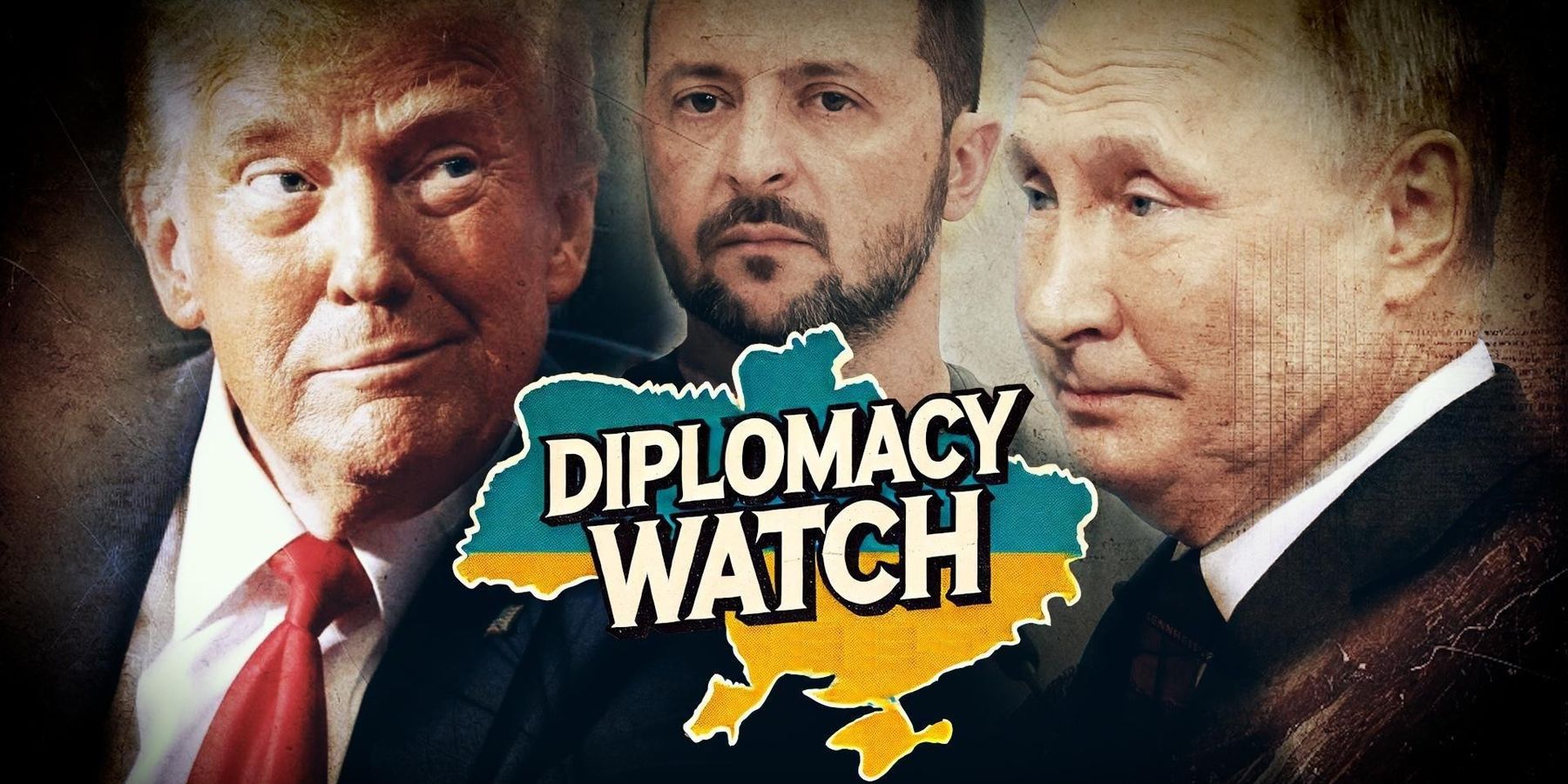Ukraine war negotiations are making remarkable strides as the conflict nears its third anniversary.
Indeed, American and Russian officials met at high-level talks in Riyadh, Saudi Arabia, on Tuesday. Those present said the talks were productive.
"We did not just listen but heard each other, and I have reason to believe the American side has better understood our position," Russian Foreign Minister Sergey Lavrov said after his talks with Secretary of State Marco Rubio.
“I really believe that we’re on the cusp of peace in Europe for the first time in three years,” U.S. Vice President J.D. Vance said on Thursday, regarding ongoing developments.
With the U.S. and Russia apparently proceeding full speed ahead diplomatically, Ukrainian President Volodymyr Zelensky fears being left out.
“You cannot make decisions without Ukraine on how to end the war in Ukraine, on any conditions,” Zelensky explained. “We want it to be fair and that no one decides anything behind our backs.”
Trump blasted Zelensky’s concerns. “[Ukrainians are] upset about not having a seat, well, they’ve had a seat for three years, and a long time before that,” Trump told reporters on Tuesday. “This could have been settled very easily.”
Trump went further Wednesday, calling the Ukrainian president “a Dictator” on Truth Social: “[Zelensky] refuses to have Elections, is very low in Ukrainian Polls, and the only thing he was good at was playing Biden ‘like a fiddle.’ A Dictator without Elections, Zelenskyy better move fast or he is not going to have a Country left.”
“Biden never tried, Europe has failed to bring Peace, and Zelenskyy probably wants to keep the “gravy train” going. I love Ukraine, but Zelenskyy has done a terrible job, his Country is shattered, and MILLIONS have unnecessarily died – And so it continues…..,” Trump wrote. (The WSJ reported about one million people were killed or wounded in the war back in September.)
Amid Trump’s jabs at Zelensky, his envoy, Lt. Gen. Keith Kellogg (ret.) met with the Ukrainian president on Thursday in Kyiv. While a press conference had been scheduled to take place after the meeting, it was unexpectedly canceled because the U.S. side had not agreed to the format, according to a Ukrainian official.
Europe’s concerns about being shut out of the Ukraine war negotiations in Riyadh, meanwhile, have grown to a fever pitch, leading French President Emmanuel Macron to hold emergency meetings with myriad European nations, the UK, and Canada, to coordinate their responses to Washington’s engagement with Moscow.
After meetings held at the Elysee Palace in Paris Tuesday and Wednesday, Macron announced that the group he convened had established a “clear and united” position. According to the group, achieving any “long-lasting and solid peace” should meet three conditions: Ukraine’s direct involvement in peace talks;“robust and credible guarantees” to support a peace accord; and European security concerns must be taken fully into account..
Whether these conditions will be satisfied in upcoming diplomatic talks remains to be seen.
In other Ukraine war news this week:
Responding to the U.S. diplomatic pivot on Ukraine, European countries are bolstering their defense spending to counter the perceived Russia threat. According to Fortune, Denmark has announced a $7 billion rearmament plan, with Danish Prime Minister Mette Frederiksen, who has already clashed with Trump over Greenland, describing the political moment as “the most dangerous situation in our lifetime.”
Russian forces have retaken over 300 square miles in its Kursk region from Ukrainian forces, according to Reuters. That amounts to almost two-thirds of the territory Ukraine captured since its incursion there began last summer. The head of Russia’s General Staff, Col. Gen. Sergei Rudskoi, also claimed that Ukraine’s Donetsk, Luhansk, Zaporizhzhia, and Kherson regions are legally part of Russia and will not be returned to Kyiv as part of any peace agreement.
Reuters also reported that Russia would regard a plan floated by British Prime Minister Keir Starmer to deploy as many as 30,000 European troops, including a contingent from the UK, as peacekeepers to Ukraine as unacceptable. Lavrov has also said that any NATO-constituted force would be considered a “direct threat” to Russian security. At the Munich Security Conference, U.S. Defense Secretary Pete Hegseth likewise remarked that no U.S. troops would enter Ukraine, nor would they serve as a guarantee for EU troops there.
There were no State Department press briefings this week.
- Trump may get Russia and Ukraine to the table. Then what? ›
- Trump Ukraine envoy Gen. Kellogg faces 6 stubborn knots on Day 1 ›
















